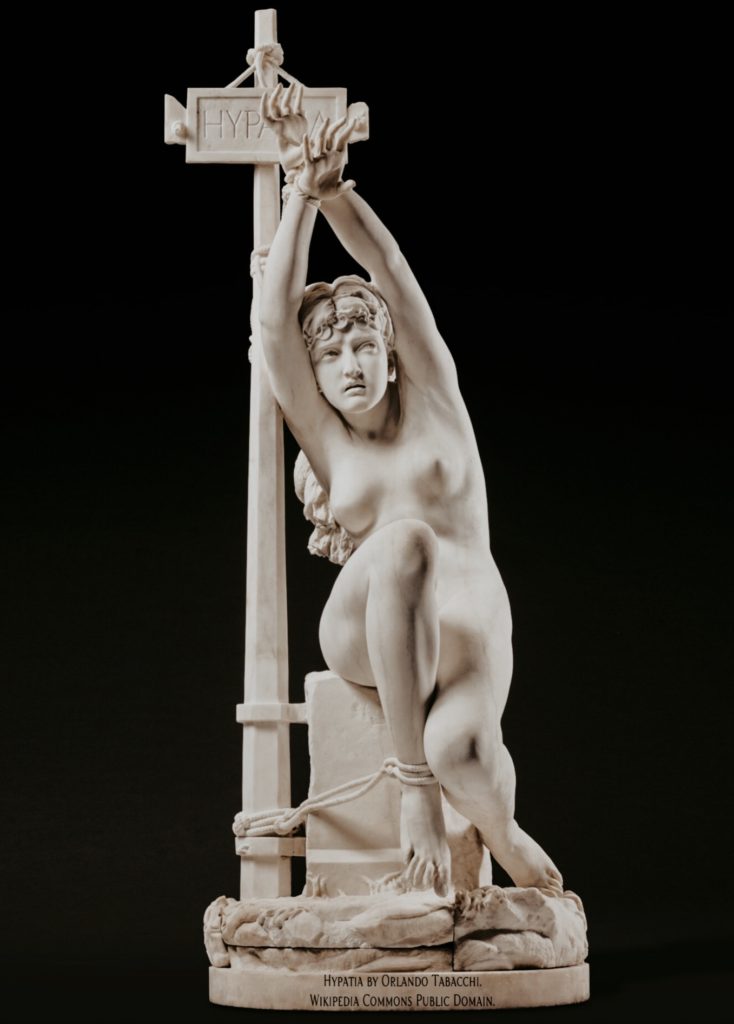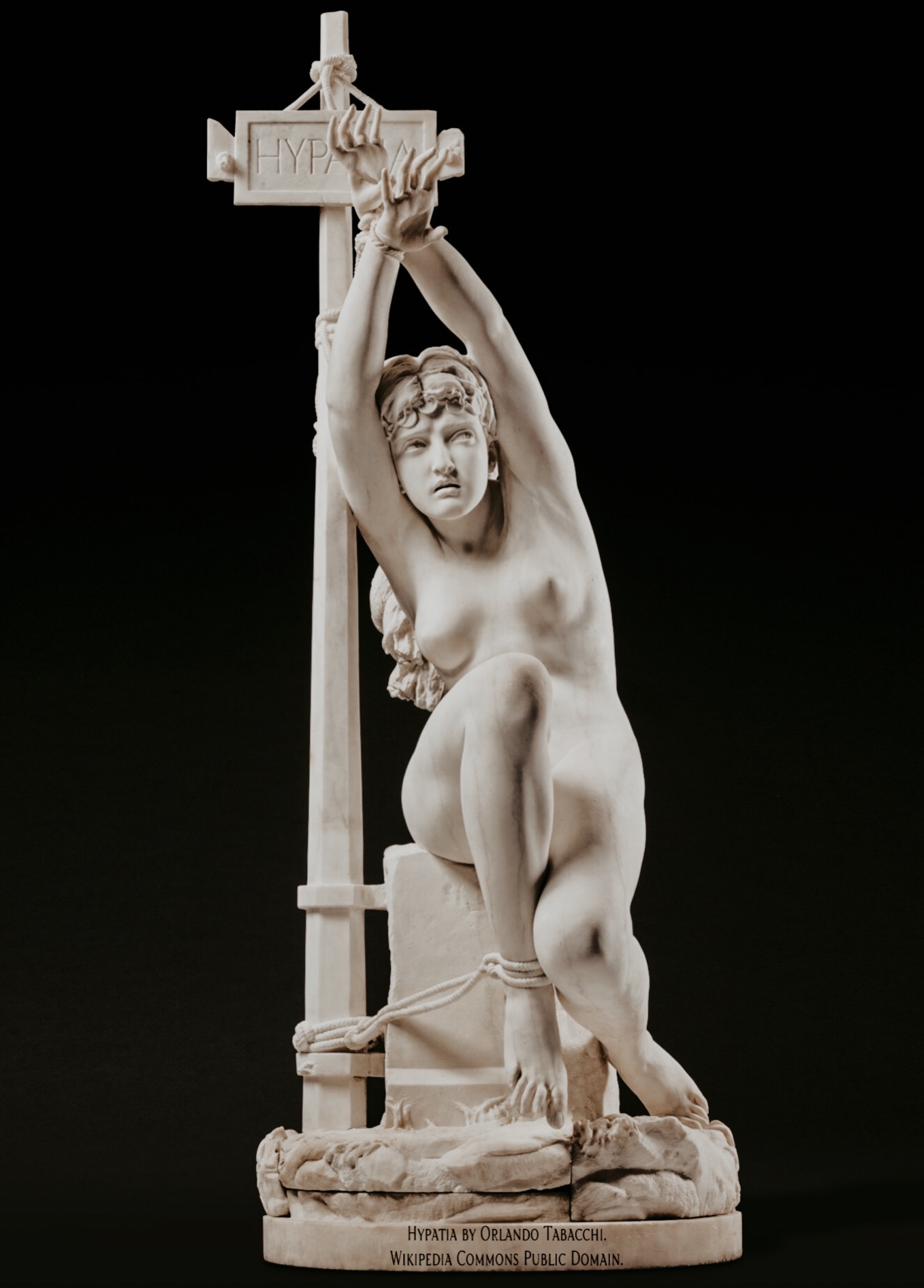On a spring day in 415 a pagan noble woman emerged from the lecture hall attached to the great library of Alexandria. Although there were many well educated pagan women of high social standing, Hypatia, as she was called, was one of the few who owned and drove her own chariot.
A familiar sight with the local populace, she often halted her horses and would descend onto the street to chat amiably with the local people or to debate issues of philosophy with whomever would wish to engage with her, her openness and elegant manner won her the affection of the townsfolk.
Hypatia’s beauty was legendary and equalled only by the intelligence, tall, confident, commanding her chariot with ease, she must have cut a striking figure in the thriving streets – no true images of her survives.
In the month of March 415, Hypatia entered the public square and found herself blocked in by a managing crowd. A zealous christian convert called Peter the reader had riled the christians of the town on behalf of Cyril, the Christian bishop of Alexandria. Cyril’s spite had arisen because Hypatia had prosecuted one of Cyril’s protégés for openly attacking pagan doctrine.
Peter exhorted the crowd to throw tiles as Hypatia, they yanked loose her clothing and dragged her from her chariot from where they stripped her naked. They called her a wytch – a wild heretic – saying that her teachings were the wiles of Satan.
Her jaw was the first bone to break.
Crushed under a flurry of blows and kicks – her corpse soaked crimson, yet their wrath continued still. Ripping her limbs from her torso, they dismembered her lifeless corpse.
Wild eyed with excitement, several members of the mob ran to a near by harbour and scooped up the razor sharp oyster clams as Peter goaded them to scrape every last piece of flesh from Hypatias bones.
This event signalled the beginning of the dark age.
Hypatia was around 45 when they killed her. She was the daughter of Theon of Alexandria, the last known teacher of the mystery school in the Spiritual University of Antiquity. Historians have long regarded her death as ‘the’ event that signalled the end of Paganism and the dawn of the new age. Paganism is the generic term for the pantheistic religions of the Classical Western world.
Most of the words above are copied directly from the book “Not in his image,” by John Lamb Lash. I highly recommends this book.
I also recommend an amazing film about Hypatia, named ‘Agora’ (2009.)


